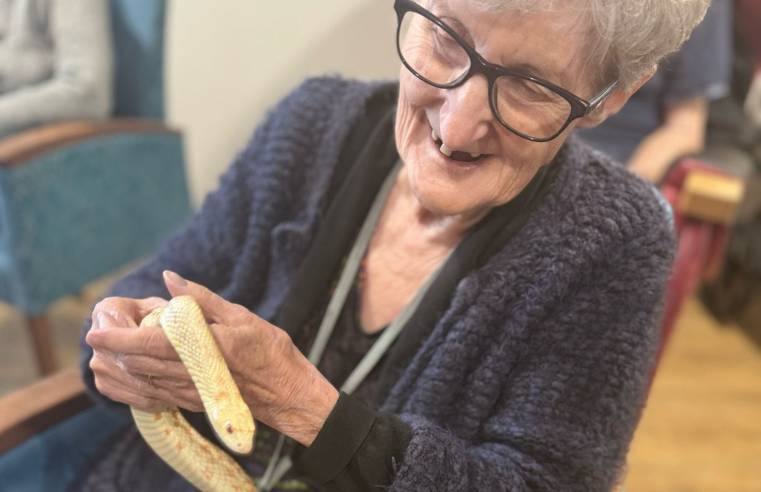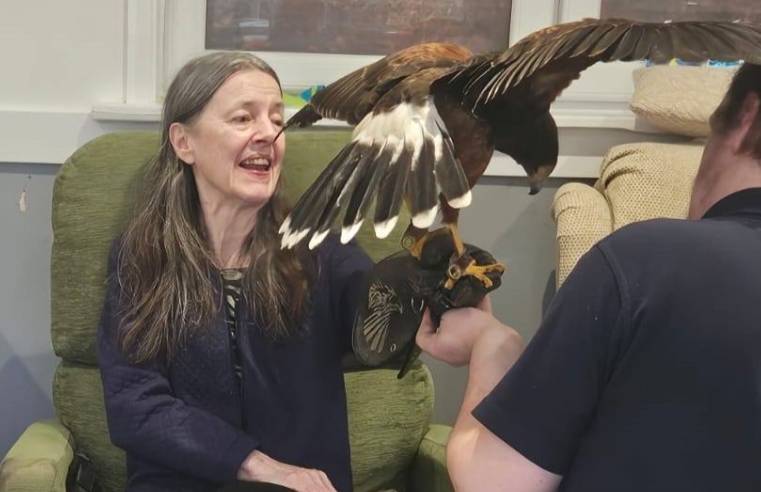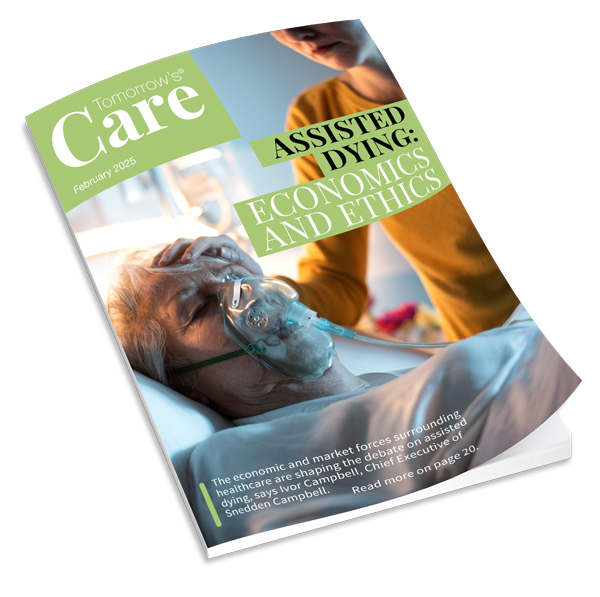You are here
- Home
- >
- Technology
- >
- Leeds Beckett University evaluate Dementia Diaries project
Leeds Beckett University evaluate Dementia Diaries project

Published on 22/12/2015
Researchers at Leeds Beckett University are set to evaluate the Dementia Diaries project established to bring together people’s experiences of living with dementia as a series of audio diaries.
The Leeds Beckett team will evaluate the project which documents the day-to-day lives of people living with dementia, in a bid to prompt a more in depth dialogue about what it is like to live with the condition.
The Dementia Diaries initiative comes as part of the Dementia Engagement and Empowerment Project (DEEP) run by On Our Radar - a small non-profit communications agency. The project is run in partnership with Innovations in Dementia and OwnFone, and is supported by Comic Relief.
The research has been commissioned to enhance the existing internal monitoring of the project and to help improve the scheme's effectiveness, as well as provide a valuable resource for others considering similar initiatives.
The evaluation will also enable the Dementia Diaries participants, and their carers, to understand if and how their efforts have contributed to change.
The project will involve analysis of how the work of Dementia Diaries has influenced media coverage and key services which affect the lives of people with dementia. The evaluation will also assess the effectiveness of the work and suggest improvements to the initiative for potential future projects.
Dementia Diaries has used 3D printed mobile handsets to allow participants to both record audio diary entries and capture their thoughts and experiences as they occur.
These handsets are linked to a dedicated voicemail and as soon as a diary entry is recorded, it is automatically sent via the internet to the editorial team at On Our Radar.
Dr James Woodall, Reader in Health Promotion and Co-Director of the Centre for Health Promotion Research at Leeds Beckett, said: “We are delighted to be involved in evaluating this important project. The aims of the Dementia Diaries to both promote the potential to ‘live well’ with dementia and to challenge stigmatising media coverage of the condition are so important in fostering a dementia friendly society.”
Claire Surr, Professor of Dementia Studies at Leeds Beckett, added: “Challenging inaccurate and negative reporting of dementia in the press has been identified as an important step to reducing societal stigma of the condition. This research will help to understand if and how the Dementia Diaries project is contributing to this.”
Paul Myles, editorial manager for On Our Radar, added: “A lot of the Dementia Diaries participants thought 'oh well, I've been written off'; they didn’t believe that they would have the opportunity to be a new technology user and to be developing their storytelling skills and to be featured in national media and other places.
"There's a pride in picking up these new skills, adapting to new technologies and actually achieving something new in their lives when often people get diagnosed with dementia and people consciously or subconsciously write them off a bit and be like 'it's downhill from there'.
"There's a lot about that they can't do anymore, and they're not denying that, but a lot of their faculties are still there, a lot of their personality traits are still there. The collective experience of having a group to belong to which they are campaigning with and lobbying on issues with a sense of purpose has been very positive."
Related News
Categories
- CQC ratings
- Care home news
- Care jobs
- Care planning
- Care sector awards
- Care sector events
- Care sector news
- Care staff
- Charity
- Cleaning & Hygiene
- Construction
- Dementia
- Disability
- Entertainment
- Finance
- Fitness
- Food & Drink
- Fundraising
- Furniture
- Health & Safety
- Healthcare
- Hospice & Palliative Care
- Hospitals
- Industry Comment
- Interiors
- Laundry
- Legal
- Leisure
- Medication
- Mental Health
- Mobility
- New appointments
- PPE
- Products
- Property
- Recruitment
- Relationships
- Research
- Safeguarding
- Security
- Services
- Social care
- Sustainability
- Technology
- Training
- Transport
- Uniforms
- Waste
- Wearables























